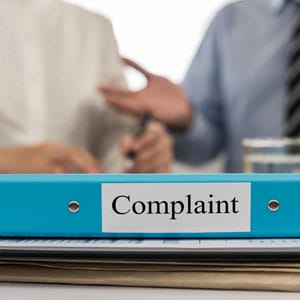Call For A Free Consultation
(631) 359-8016No Recovery, No Fee

If you remain employed during your case, it’s critical to continue recording and documenting any incidents of discrimination. This is because many types of claims in Florida include anti retaliation provisions. These provisions protect employees who bring good faith complaints, making any retaliatory actions taken by the employer far more serious.
For example, I once represented a young waitress at a newly established restaurant. She endured frequent discriminatory and sexually inappropriate comments from a middle aged male kitchen manager. In good faith, she reported that the behavior was making her uncomfortable. While those comments alone might not have been actionable under the law, what followed certainly was.
The manager to whom she reported the issue told her the next day that he didn’t want to deal with “drama” between the kitchen manager and the waitress. He decided to terminate her employment, citing her probationary status.
What the manager misunderstood was that while Florida law does allow employers to terminate employees within the first 90 days of probationary employment, discriminatory or retaliatory terminations are still unlawful.
The employer tried to argue that the initial conduct wasn’t severe or pervasive enough to constitute a hostile work environment claim. They may have been correct on that point. However, as I explained to them, this was no longer a hostile work environment case—it was a retaliatory discharge case. The waitress made a good faith complaint, and the employer terminated her employment specifically because of it.
This example underscores why ongoing documentation is so important. Even if your initial complaint isn’t actionable, any retaliation stemming from it can form the basis of a valid claim. As such, keeping detailed records ensures that you are prepared to address such actions effectively.
Deciding whether to talk about workplace discrimination with your coworkers is a delicate matter. The best approach often depends on your specific situation and how much you trust the people you work with. In many cases, it’s smarter to hold your cards close to your chest and address the issue through proper workplace channels first.
Sharing too soon or too broadly can lead to unintended consequences, like gossip or workplace drama, which might create more challenges for you or your coworkers. Starting with formal procedures often allows for a resolution without unnecessary complications.
That said, I know many people act before consulting a lawyer and later wish they had sought advice sooner. Luckily, since you’re reading this, you can avoid that mistake. A good lawyer can help you weigh the pros and cons of sharing your concerns and guide you toward the best decision for your situation.
I always take time to ask clients about their workplace dynamics, because there’s no one size fits all answer. In some cases, involving coworkers can offer valuable support and strengthen your case. In others, it might escalate the situation or make things more difficult. Ultimately, I’m here to help you make a strategic decision that fits your unique circumstances.
If a coworker or employer begins treating you differently—or discriminatorily—after you’ve filed a complaint, it’s important to address the situation promptly and professionally. Report the behavior just as you did the initial incident, keeping your tone polite and factual.
Retaliatory conduct is significant. In fact, retaliation claims can sometimes be a stronger legal avenue than the initial discrimination claim itself. Employers are required to avoid treating employees differently in response to good faith complaints, so documenting retaliatory behavior is critical.
If you notice differential treatment after making your complaint, respond by documenting the incidents thoroughly and reporting them through the appropriate channels. This ensures your employer cannot feign ignorance or claim plausible deniability about your concerns.
While I’m just a lawyer and stress management isn’t in the civil code, I’ve learned a few things from my clients—and my own experiences—that might help.
The key is to compartmentalize. On the one hand, acknowledge the workplace challenges you’re facing, but on the other, remind yourself of the more pleasurable and positive aspects of your life. Shifting your focus to things that bring you joy can make coping with the stress of litigation and work more manageable.
Even small steps can make a big difference. Try to prioritize your health by eating well, exercising regularly, and getting enough rest. Spend time with friends, family, or loved ones who can help you maintain perspective. These moments of positivity can recharge you and give you the resilience needed to handle your case.
Remember, this is just one chapter in your life. Soon enough, you’ll be on the other side of this, hopefully with a favorable resolution. By keeping the better parts of your life at the forefront and taking care of yourself, you’ll have the energy and stamina to see this through.
Finally, having a great lawyer by your side can significantly reduce the legal stress. We handle the deadlines, the details, and the heavy lifting, so you can focus on what matters most—your well being and future.
For more information on Workplace Discrimination Claims In Volusia County, FL, a free initial consultation is your next best step. Get the information and legal answers you are seeking by calling (631) 359-8016 today.